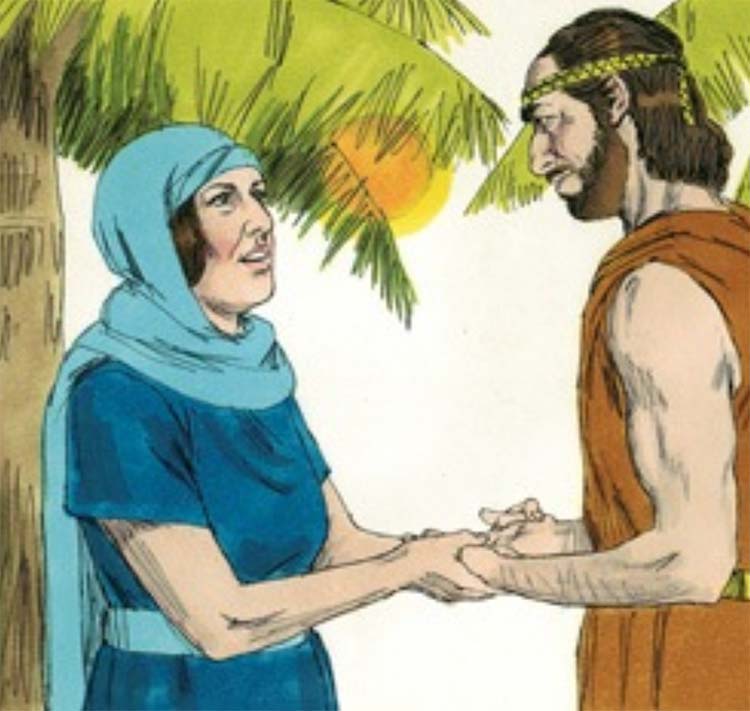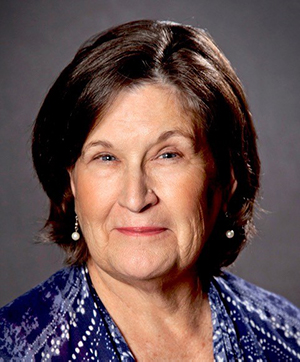By LAURA LEE LEATHERS

You will find a notable story in the Bible about a woman whose business office was under a palm tree. Through her daily work, she exemplified godly leadership. Some refer to her as a fearless patriot, a warrior.
If you did an Internet search of women leaders in the Bible, usually she is mentioned first. Her name is Deborah, the second Deborah listed in the Bible. Her name means “the bee,” and you’ll find her story in Judges 4-5 and Hebrews 11:32-34.
Let’s see what we can glean from her leadership style for the 21st-century woman.
Her calling
In Judges 4:4, Deborah’s first title is that of “a prophetess,” a little unusual. Prophets spoke the words of God to the people and talked to God for the people. There were two significant kinds: foretelling (predicting things in the future) and forthtelling (speaking about sin, judgment and righteousness). See Paul’s definition in 1 Corinthians 14:3.
After Joshua’s death, Israel did what was evil in the sight of the Lord. They abandoned Him and served other gods (Judges 2:11). Then God called out men and women to serve as judges. God’s presence was the judge, and He would intercede through this person to spare the Israelites from their enemies. However, as soon as the judge died, the Israelites returned to doing evil.
It’s against this backdrop that God called Deborah to be Israel’s fourth judge. Her job was to encourage, strengthen, comfort and lead with humility and wisdom.
Her family life
There is no prior history regarding Deborah’s genealogy, nor is there anything about her background regarding special training or education.
Her second title was “the wife of Lapidoth.” They lived between Bethel and Ramah in the hill country of Ephraim. There is no mention of natural children from this marriage, but she arose as a mother in Israel (Judges 5:7).
Was Deborah a prophetess before she got married? Scripture isn’t clear, but it makes me wonder, since this “title” of wife is listed second. I believe we can see her husband was supportive of her role as judge and prophetess.
One thing is sure: If God has called you, He will equip you.
Her marketplace witness
As I read Judges 4:5, I envision her office, located under “the palm of Deborah.” At the road, there’s a sign, “Judge Deborah,” written in Hebrew. Notice the people had to “come up to her for judgment.” Going up is an important phrase biblically, signifying seeking God.
Her job required a listening ear, tremendous wisdom and the ability to administer justice regarding family, tribe or nation. The people had confidence in her wisdom, or they would have gone somewhere else. Also, at this point in history, people were involved in pagan worship practices. It was a time of apostasy, evil and lawlessness, and oppression from Israel’s enemies.
Her warrior spirit
Deborah sent for Barak (Judges 4:6-7) and gave him instructions: “The LORD, the God of Israel, commands you.” Later, she tells him all that God will do. Then Barak throws in a stipulation: He’d only go to battle if she also went (v. 8; read verses 6-24 for the entire story). Did he lack courage? Did he believe God’s presence would be more significant if Deborah were there? However, in Hebrews 11 we read of Barak’s faith.
Deborah agrees to go with Barak and his 10,000 men to fight against Jabin, his army and chariots after a 20-year oppression. Deborah tells Barak the glory would go to a woman, Jael, who would kill Sisera.
Her song of credit
Judges 5 is known as the song of Deborah and Barak. It is a beautiful duet, performed as a tribute to God, about His mighty work in the battle. Deborah takes no credit.
Then the land had rest for 40 years.
Deborah’s leadership principles
Our world today is no different than in Deborah’s time. There is evil, lawlessness, and no fear of God. What is a woman to do?
Remember the meaning of Deborah’s name and apply these “bee” principles to your leadership role:
◼ Be His light (Matthew 5:14-16).
◼ Be a godly woman; know His Word (2 Timothy 3:16-17).
◼ Be obedient and sensitive to God’s calling in your life (2 Peter 1:3-4).
◼ Be humble (1 Peter 5:5-6).
◼ Be wise. Use the natural and spiritual gift of wisdom (Proverbs 2).
◼ Be a woman who uses spiritual gifts and talents for God’s glory (Matthew 25:14-30).
◼ Be a woman who firmly stands against evil and oppression (Ephesians 6:11).
◼ Be a woman of prayer (James 4:2). Ask God for strength, perseverance and greater devotion.
◼ Be a woman who sings of God’s mighty works (Psalm 66:1-4).
What if I am a
woman? Is not the
God of ancient times
the God of these
modern days? Did he
not raise up
Deborah, to be a
mother, and a judge
in Israel? Did not
queen Esther save the
lives of the Jews?
– Maria W. Stewart, 1835

In this new season of her life, Laura Lee hopes to focus on her three passions: freelance writing, sharing and serving through hospitality, and cultivating Lady Laura’s Garden, a cut-flower farm. You can contact her at LauraLeeLeathers.com.